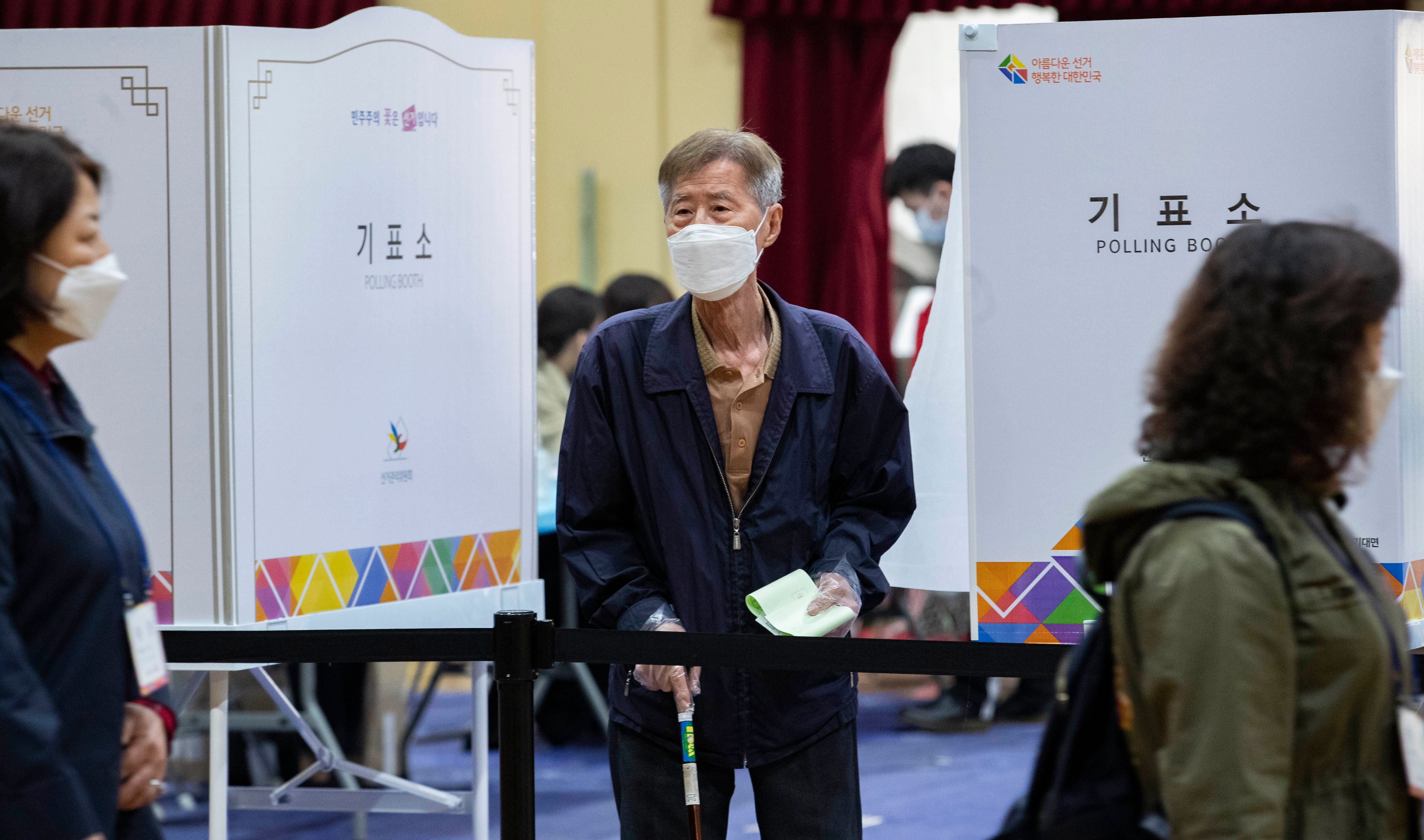Parliamentary Elections in South Korea during the COVID-19 Pandemic

Why were the elections held amid the COVID-19 pandemic?
Holding legislative elections was in line with existing restrictions introduced by South Korea in response to COVID-19. The authorities have not introduced bans on movement, only recommend avoiding group meetings, maintaining physical distance, and discouraging participation in mass gatherings. No political option raised the idea of postponing the elections because of the pandemic. Also, since the end of March in South Korea, the number of new coronavirus infections has largely decreased (currently it is several dozen new infections a day). Regardless of this, due to the ongoing campaign to maintain distance in public space, political parties in the election campaign focused more on social media messages rather than traditional election rallies. The emergency response to the pandemic was also the main topic of the campaign.
What were the political stakes in the elections?
The elections were unlikely to create a new government, rather they were a test of the political support for the executive, headed by the president, to push laws through parliament. The parliamentary majority won by the president’s party ensures him stable governance until the end of his term in 2022. In turn, the opposition conservative United Future Party hoped to take advantage of the president's weaker ratings last year to gain seats that would let them block government proposals. A good result was also supposed to rebuild their political credibility after the impeachment of President Park Geun-hye in 2017.
How were the elections organised despite the pandemic?
The National Electoral Commission introduced a number of restrictions regarding the organisation of elections. In addition to keeping distance between people in queues to polling stations, voters had to disinfect their hands and wear face masks and gloves. Voters’ body temperature were checked and people with higher temperatures (over 37.5) voted in special disinfected booths. More than 550,000 people were involved in the organisation of the elections. People who were seriously ill could vote by mail while those with mild symptoms could vote in special booths at treatment sites. In turn, healthy people, but in home quarantine, could vote at the polling stations in the last hour. About half of the registered 172,000 voters abroad could not vote because 91 diplomatic missions were unable to hold elections due to COVID-19.
What were the specific results and what was decided?
The ruling DP and its satellite party won the election, winning 180 seats in parliament (60%). This is the best result for a single party in the democratic history of South Korea (since 1987). The largest opposition bloc, the conservative UFP and its sister party, received 103 seats. The remaining 17 seats in parliament will be occupied by candidates from four smaller parties. The highest turnout recorded since the parliamentary elections in 1992 amounted to 66.2%. The most important factor contributing to the victorious camp was the success of the Moon administration in the containment of the spread of the virus in recent weeks. Its efficient crisis-management knocked down arguments by the opposition, which focused on the initial failures of South Korea in the fight against COVID-19, as well as criticism of Moon’s economic policy and last year’s corruption scandal around the justice minister appointed by the president.
What do the election results mean for President Moon’s internal and foreign policy?
Until the end of Moon’s term, the ruling bloc will be able to pass any bill without having to seek opposition votes. In the short term, the Moon administration will focus on continuing the fight against COVID-19, including the adoption of an additional budget to finance further stimulus packages for the economy. In the longer term, Moon is expected to accelerate actions on his core, but controversial, initiatives, such as reforming the prosecution service, phasing out nuclear energy, and following income-led growth policy. The election results will not change the assumptions of Moon’s foreign policy, which will focus on improving relations with North Korea, trying to overcome challenges in the alliance with the U.S., and solving problems in relations with Japan. Current relations with the EU based on economic ties should be maintained.


